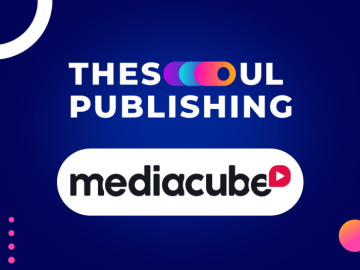The online banking industry has evolved quite a bit in recent years, and that’s especially true of online checking accounts. Not only can these accounts help you save money on banking fees, but they can also allow you to earn interest on your balance and take advantage of several other perks that aren’t common with brick-and-mortar banks’ checking accounts.
There are certainly some cases where sticking with a traditional bank makes good financial sense. But for the majority of people, it could be a smart idea to take a closer look at online checking accounts.
If you haven’t looked into online checking accounts in a while, click here to see what the top online checking accounts offer.
Reasons to use an online checking account
Perhaps the biggest reason to switch to an online checking account is to avoid fees. All of the top online checking accounts have no monthly maintenance fees, and most don’t have overdraft or non-sufficient funds (NSF) fees either.
Our Picks for the Best High-Yield Savings Accounts of 2024
|
Capital One 360 Performance Savings APY 4.00%
Rate info Circle with letter I in it.
Member FDIC.
|
APY 4.00%
Rate info Circle with letter I in it.
|
Min. to earn $0 |
|
CIT Platinum Savings
APY 4.70% APY for balances of $5,000 or more
Rate info Circle with letter I in it.
Min. to earn $100 to open account, $5,000 for max APY
Member FDIC.
|
APY 4.70% APY for balances of $5,000 or more
Rate info Circle with letter I in it.
|
Min. to earn $100 to open account, $5,000 for max APY |
|
Western Alliance Bank High-Yield Savings Premier
APY 4.81%
Rate info Circle with letter I in it.
Min. to earn $500 to open, $0.01 for max APY
Member FDIC.
|
APY 4.81%
Rate info Circle with letter I in it.
|
Min. to earn $500 to open, $0.01 for max APY |
While most brick-and-mortar banks have some way for account holders to avoid fees, such as by maintaining a certain balance, online banks just don’t charge these fees at all.
It can also be far more convenient to deposit and access your money with an online checking account than you think. In addition to mobile apps that make it easy to move money around, many online banks offer access to 60,000 (or more) ATMs for fee-free withdrawals. For context, mega-bank Bank of America has a network of about 15,000 ATMs nationwide.
Some online checking accounts offer unique and valuable perks. As an example, the Discover® Cashback Debit account allows you to earn 1% cash back on debit card spending, up to a monthly limit. Click here to learn more and open an account today. Some online checking accounts offer customers free paper checks. And some accounts not only have no fees but pay interest as well.
When a brick-and-mortar bank could be the better fit
One of the biggest objections I hear when it comes to online checking accounts is, “What if I need to go to a branch or get in-person customer service?” And to be fair, I had the same objection initially — until I realized I hadn’t set foot in a bank branch for more than three years.
Of course, there are some people who would be better off with a brick-and-mortar bank. For example, if you regularly deal in cash, it could be smart to keep a brick-and-mortar checking account. Maybe you work in the service industry and leave with cash tips every day, or maybe you have a small business where customers often pay you in cash.
While some online checking accounts allow you to deposit cash in certain ways, it’s usually a somewhat clunky process. You might need to deposit into another bank account and then transfer it to your online account. This is one task that is clearly more convenient at a brick-and-mortar bank.
There are other examples as well. Maybe you regularly need to get cashier’s checks on short notice, or regularly need other services brick-and-mortar banks provide for account holders.
Online banking is better for most people
Personally, I primarily use online bank accounts. However, I still maintain an account at a branch-based bank (a small business account for a real estate investment). But I’d estimate that for 99% of my banking, my online accounts offer everything I need.
The bottom line is that unless you regularly deal with cash or have some other need to visit a banking branch often, an online checking account can save you money and offer convenience and valuable benefits.







